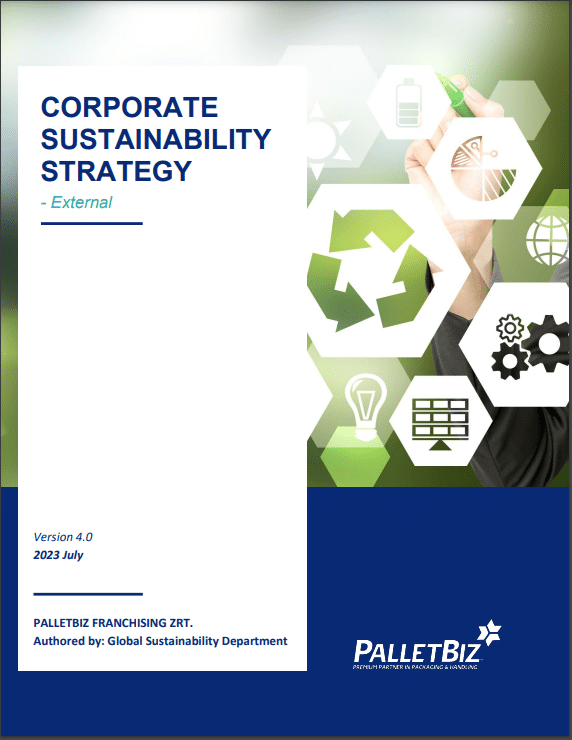Industrial packaging, despite its crucial role in the value chain, is often overlooked or poorly managed, along with its by-products. However, there’s no denying the environmental impact that comes with the life cycle of packaging materials. If not done by the principles of sustainable foresting practices, the extraction and harvesting, of raw materials (wood) can lead to land degradation and loss of biodiversity. Meanwhile, energy consumption and emissions are associated with the manufacturing process. Transporting products to consumers also contributes to energy consumption and air pollution. Research demonstrates that uncontrolled waste disposal can lead to littering, air emissions from landfills, and leachate in groundwater.

To address these challenges head-on, PalletBiz targets to introduce sustainable strategic measures that improve, among others, eco-efficiency in the supply chain and transport, product development, waste management & recycling, and working conditions. In addition to measures that counteract negative impacts, PalletBiz promotes potentially positive contributions of packaging to sustainability as well, through, for instance, reduced use of raw materials and decreased material waste along the entire life cycle, reduced risk for human health hazards, and increased handling and transport efficiency.
PalletBiz Solutions:
The sustainability challenge of sourcing wood from uncertified sources is one of the most highly significant aspects at PalletBiz. We address this by ensuring that an increasing portion of our raw materials come from sustainable and verified sources through responsible and certified foresting and trade. This can be achieved by sourcing timber and wood-based products that carry the FSC, PFCS or SFI logo and/or label in greater proportions.
Waste management is also significant at PalletBiz, and we address related challenges by introducing material reusage and recycling schemes. We aim to utilize all resources to the fullest extent while increasing the rate of production from packaging waste, such as sawdust and other fractions of packaging. We also use our core product, sawdust, as fuel for our boilers or other ways of re-purposing (e.g., kiln-drying).
Furthermore, we integrate the perspectives of “design for recycling” and “design from recycling” into our product development processes to minimize waste. We optimize our materials management and sourcing by ordering cut-to-size elements instead of whole parts that later need to be cropped and partially wasted. This is not only a more economically and environmentally conscious solution, but also facilitates faster production via optimized assembling processes.
Our overall business objective is to achieve a stable position as an established provider of premium, sustainable industrial packaging and handling solutions with a widely ranging product and service portfolio. To achieve our sustainability goals we follow the action plan as laid out in our Sustainability Strategy, which can be read in full here.
The Path Ahead:
Our vast industry has yet to learn and implement grand(er)-scale sustainability measures; and PalletBiz aims to lead the way by embracing sustainable innovations, green investments, and responsible consumption and production – as well as open communication on our progress.
We are far from perfect and are aware of our constraints and limitations. We still have much to improve on our sourcing and supply chain practices to fully anchor the sustainability principles. We have yet to explore the best ways towards product efficiency and 3Rs by engaging in and utilizing the full life cycle of our products, while providing true value-add for our customers. We must develop greener and more optimized product distribution solutions through intermodal transport. We must educate on and spread sustainability applications both within and outside our industry for enhanced collaboration and shared commitment up-and downstream.
In pursuit of solidifying our commitment, we are constantly investigating new avenues – the most recent one being the issuance of sustainability-linked bonds. Stay tuned for more!

